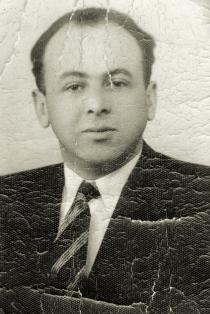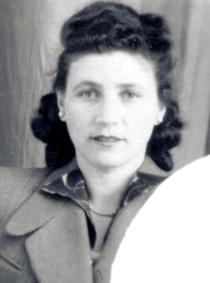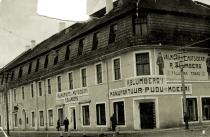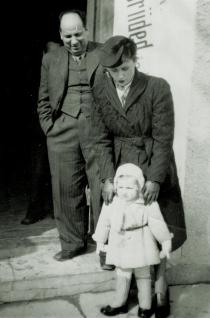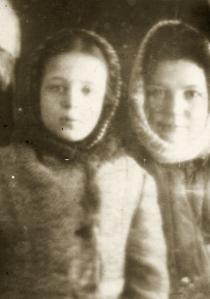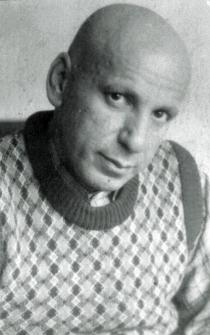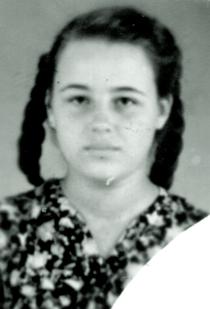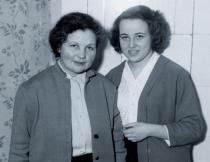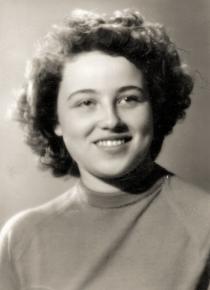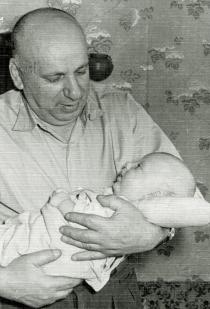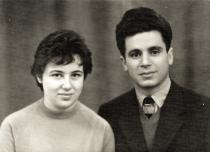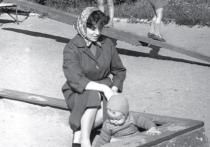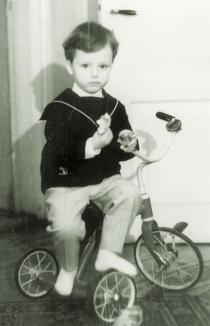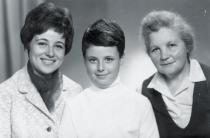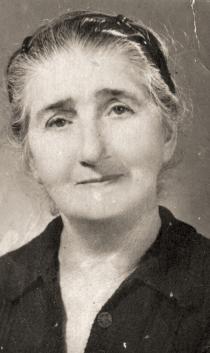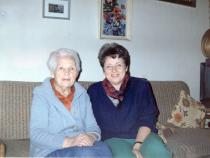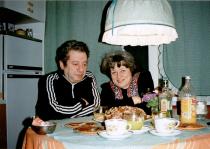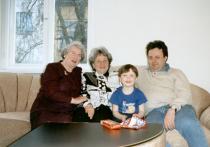This photo was taken before the departure of my mother to take up permanent residence in Israel. Mama came to say good bye and we were photographed for the memory. From left to right: I, my son Nevil Blumberg, my mother Hana-Leya Levin. This photo was taken in Tallinn in 1969.
I worked in the clothing industry for 17 years. I worked in the experimental department where we designed clothes to be introduced in production. I liked this job a lot, but in due time lots of standards were established and the element of creativity vanished. Everything was so plain and dull that I no longer enjoyed this work. I decided to do something different. I was lucky to get a job at the publishing office at the Ministry of Communications. The publishing office reported to the Central Committee propaganda department. I was the only employee, who was not a party member , but they accepted me, anyways. I was responsible for the distribution of newspapers, magazines and books in Estonia. I liked this work and did it successfully and for a long time. It also involved communicating with other people. It was the process of mutual enrichment with good outcomes. I had this job for over 15 years.
My son was born in 1961. We gave him the name of Nevil. Nevil studied in the Russian school. He was doing well at school. When he went to the 3rd grade at school, we sent him to a music school. He took violin classes. Nevil finished the Russian school and the music school and entered a Music college. When he was still a student, he was offered to join a band as a solo-guitarist. It didn't take him long to learn the instrument. He was 17 years old at the time.
After World War II Mama did not always behave adequately, and those were hard times for me, when I witnessed that. It was additional emotional stress for me. It was not that I was ashamed that she was my mother, but it was painful to watch her condition. It took me some time to realize that Mama was ill. This was the result of deportation and life in exile. Mama did not die in exile, she survived physically, but she was broken down spiritually, and her life was wasted. Mama was not resentful, but inside she could not accept the Soviet regime, the system that broke her life. She lived her life in fear, and this fear that was inside her developed into sickness, phobia. However, Mama did not realize she was severely ill. Living in the USSR, we somehow ignored any indisposition until the pain became unbearable, and as for mental problems, people were not used to paying any attention, whatsoever. Only after Mama moved to Israel in 1970, since this was the dream of her life, she had medical examinations and treatment.
It was Mama's dream to move to Israel. She got a chance to make her dream come true during the mass departure of Jews to Israel in the 1970s. She received a letter of invitation from a distant relative. Mama wanted me to divorce my husband and join her, but it was not for me. Mama left in 1970, and our contacts stopped for a long time. At that time one couldn't even imagine there would be time, when people got an opportunity to travel to Israel or invite their folks to visit them. My friend Dina's family also moved to Israel at about the same time, and they supported my mother as much as they could there. I got a chance to visit my mother during perestroika after 18 years of separation. Since then I kept visiting her once a year or even more frequently. Mama died in Israel in 2000.

